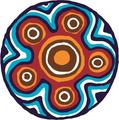PREP Term Overview

To all our wonderful Prep families,
Welcome to term 2!
Phonics and Phonological awareness
In our phonics lessons we will continue to say and identify phonemes for single-letter graphemes. We will explore sounds at the beginning, middle and end of words and apply our knowledge when we are reading and writing. We will be learning about syllables (hop-ping, fam-i-ly), onset rime (h/at, b/at, c/at, p/at etc), segmenting and blending words.
Phonic knowledge and word recognition are among the range of resources students use as they read increasingly complex texts. A phoneme is a spoken sound, and a grapheme is the letter or group of letters that represent each phoneme.
Reading
In Reading, we will be focusing on questioning and monitoring strategies to make meaning from texts.
We will also be discussing how authors have organised their writing by comparing different types of texts (Fiction and nonfiction) and the different purposes of texts (To entertain or inform). We will be making connections between texts and our personal experiences.
We will continue to practise listening for sounds in new words by sounding out letters in short words such as cat (c/a/t).
Writing
In writing, we will be focusing on developing ideas, using inspiration from our everyday lives, such as events, books, and experiences. We will be focusing on strategies we can use to help us write our sentences, including verbalising our sentence and using our phoneme fists to stretch the sounds we hear in words.
We will also be investigating how to use resources, such as word walls, DCC common words and known texts (Environmental print), to support our writing.
Numeracy
In Numeracy, we will be discussing familiar events that occur during specific times of the day as well as on weekdays and weekends. Students will also be comparing and ordering the duration of familiar events. We will be exploring data and statistics, answering questions, and comparing results using simple tables and graphs. Students will build on their number knowledge by connecting number names, numerals, and quantities, including zero, initially up to 10. We will learn to tell practical addition and subtraction stories, using mathematical vocabulary. Students will also have opportunities to show their understanding and model sharing using practical situations. Students will practice representing simple, everyday financial situations involving money.
Inquiry
In Inquiry, we will be focusing on Important places. We will be identifying and explaining why a place is important to us and our families. We will investigate why people are connected to places and describe why and how places have changed.
Social and Emotional Learning
In Social and Emotional Learning, we will be focusing on practising the school rules of being Safe, Respectful and Striving for Excellence. Students will be identifying and exploring their personal strengths and how we can use them to help others. We will also be looking at how we express emotions and use words and actions to describe how we feel. Students will learn about and practise strategies to support self-regulation and how their emotions can change.
Discovery
In Discovery, we are learning about zoo animals through play-based learning. Each class’s direction with this topic will vary depending on the questions and exploration of the students. It is through play-based learning, that the students will expand on their personal strengths, communication, and vocabulary; allowing students to develop their skills and understandings in an open, student-centred environment. Their experiences in play-based learning then become experiences in which we can draw and write about.
Home Learning
Please remember to read every night with your child and record the book (take home book, Wushka, or any other text) in your child’s yellow Reading Log.
You can watch the phonics videos (links emailed via COMPASS and/or Seesaw), to help assist you to practice at home with your child.
Please encourage your child to practice writing their name using upper- and lower-case letters. Children can also practice their letter, number, and sound recognition every night.
To further practice the concepts taught in class, you can use the online Apps (Mathletics, Reading Eggs, Literacy Planet and WUSHKA). When using these, please support your child’s understanding of the apps.
Goals and achievements
New goals and achievements will be available to view on COMPASS in Weeks 5 and 9. Strategies you can implement at home will also be included, so that you can best support your child in their learning at both school and home.
Kind Regards,
Prep Teachers
